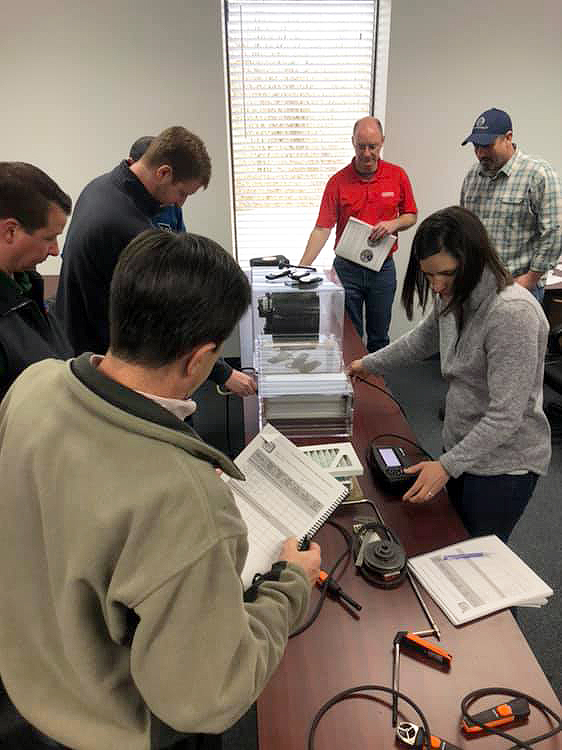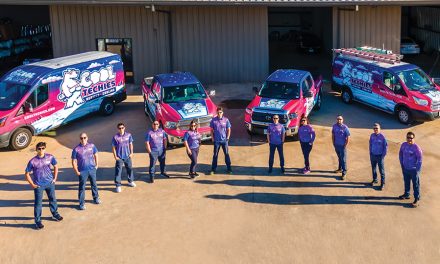More Reasons to Consider
Troy, who has worked in the business since 2006 says, ‘Training enables our technicians and our company to out-perform most of our competitors. They just aren’t training at the level we are, and very rarely do we hire techs away from them. We prefer to grow ours from the ground up. We haven’t hired anyone with experience in the past five years.’
This $4.2 million gross sales company sets aside between two and five percent of their revenues for training ‘ including a large investment in their own training center combined with outside training organization affiliations.
The ‘why’ for Wighton’s Heating and Air Conditioning revolves around what President Ric Schorer calls his three foundational pillars for success: Recruitment, Marketing, and Training.
‘Assuming your written processes are in place and you have hired the right person,’ Schorer says, ‘I believe that without consistent training, you will fail your employee and they will either quit or execute their responsibilities very poorly.’
Schorer, whose San Luis Obispo, CA-based company invests a minimum of 150 hours of training per employee, puts together a 12-month calendar and posts it in their training lab. He says their technicians know exactly what is expected of them and they are engaged in enhancing their careers and serving their customers best.
Training Payoffs
At Masterworks Mechanical, owner and president Vic Updike agrees. He says ‘Our team has an untrainable dedication to Masterworks’ image and our customers’ well-being. It comes from the culture, the family approach to management, and empowerment. And others see this and find it attractive as a place for them to work too.’
The Craig, Colorado-based residential and
‘We measure everything,’ he explains, ‘Before and after every job. Our technicians do airflow and combustion tests which provide us the numbers we need to prove our solution worked. No one else in our area does that. We can offer products and services nobody can compete with and we can name our price.’
The winners here really are everyone: the customers get comfort, energy efficiency, health, and safety issues resolved; distributors see fewer callbacks and warranty issues, and the contractor grows profits and markets as a result.
‘Our training investment is immediately translated into the field, enhancing our technicians’ skills and performance as well as benefitting our customers,’ says Bobby Bevill of Davis Services. ‘It helps our people feel confident in what they’re doing.’

In fact, he says that Air Upgrades are now a large part of everything they do. ‘We quote them on every single job,’ Bevill says.
The direct result: growth. And that means they need to always look for more people.
Another direct benefit is that by training, especially in High-Performance Contracting, contractors can and do smooth out the hills and valleys of weather and season that can impact an HVAC company.
In fact, Bevill mentions that in the past, during ‘slow years,’ if it weren’t for their training regimen, they wouldn’t have been able to keep their people busy and would have had to lay them off or worse.
What Type of Training is Best?
To really provide meaningful training in this area requires more than just a classroom setting ‘ it requires a lot of hands-on experience as well. This is what Ric Schorer says is key to success.
For Wighton’s Refrigeration, it also means the tech needs to be open to learning new things and relearning things they think they know.
He says the key to his company’s program is to ensure their field team is proficient in the use of tools to measure, read wiring diagrams, then interpret this information on functioning equipment (in the presence of your peers). They conduct this type of training weekly.
Masterworks also conducts weekly, in-house training to go over all aspects of the products and services they offer.
‘But we make an investment in professional training such as that provided by the National Comfort Institute (NCI),’ Vic Updike says.
Both Bobby Bevill and Troy Jansen are big believers in bringing outside experts into their companies as well.
Click the link below to go to the next page:













Recent Comments